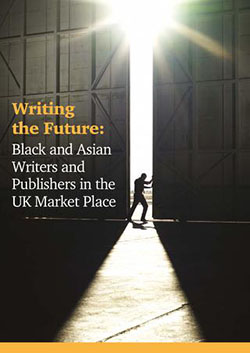British fiction has a goodly amount going for it. This column wouldn’t exist if it didn’t. But nothing is perfect, not even the field I hold so near and dear to my heart. Independent publishers are going under left, right and center, and in terms of representation, the industry is nowhere near what it needs to be. Happily, the past 48 hours has seen the announcement of a pair of new prizes which aim to address those very concerns.
Award-winning novelist Neil Griffiths is launching the Republic of Consciousness Prize in an attempt to celebrate “small presses producing brilliant and brave literary fiction” in the UK and Ireland, and, in light of the backlash following last year’s all-white World Book Night, authors Sunny Singh and Nikesh Shukla have, with the assistance of The Author’s Club and an anonymous benefactor, set up the Jhalak Prize for Book of the Year by a Writer of Colour.
“In Hindi and many related Northern Indian dialects, Jhalak means ‘glimpse,’” said benefactor asserted. “Implicitly brief, often tantalising with promise, piquing curiosity to explore further. It seems an appropriate name for what I believe is the first prize for Book of the Year by a Writer of Colour.”
Singh later explained what motived her to help found the Jhalak Prize:
As Spread the Word’s Writing the Future report noted in 2015, British writers of colour are more likely to be not agented, not published, not marketed, not reviewed, not rewarded, and therefore, unsurprisingly, not read. They are also unlikely to be invited to literary festivals or asked to comment on anything that is not narrowly linked to their race or ethnicity.
Each segment of the industry blames the other creating a merry-go-round between publishers, prize committees, critics, festival organisers and agents, all of whom are unwilling to face up to one basic point: the clearly evidenced institutional bias and structural problems which actively undermine diversity rather than fostering it.
“Against this backdrop,” Singh said, “the Jhalak Prize is not a tokenistic attempt at diversity but rather a celebration of it.” As such, entries will be accepted irrespective of genre, form or indeed publishing model. Self-published writers will be treated no differently than those authors published by the big hitters; long-form fiction and non-fiction will be looked at right alongside short stories, graphic novels, poetry, children’s books, YA and teen efforts, etc.
The Republic of Consciousness Prize, on the other hand, won’t accept admissions from authors who have self-published, nor from publishers with more than five employees—which makes sense when you realise that the whole point of the prize is to reward independent presses that take risks in the name of great writing rather than stratospheric sales.
Griffiths’ initiative is, in several senses, similar to Singh and Shukla’s, in that both parties believe the traditional model is systematically crippling creativity; shutting out a certain type of writer, and a certain type of writing, basically because big businesses operate on an economy of scale:
Only big publishers can afford big advances, and big publishers only offer big advances when they believe the novel can achieve—you’ve guessed—big sales. It’s about bigness. Small presses aren’t big.
Agents are good at supplying the publishing industry with what it needs to keeping going, but more often than not it doesn’t vary much from what has been previously successful.
That’s why we need small presses: they are good at spotting the literary outliers. Their radar is calibrated differently from agents, or mainstream publishers. Small presses don’t ask how many copies will this sell, but how good is this—what is its value as literature?
Having put forward a sizable sum of his own money, Griffiths is hoping to inspire other writers to contribute to the Republic of Consciousness Prize pot, which will be split between one author and the small press who took a chance on that author next January. We’ll hear more about the Jhalak prize somewhat sooner, when the full judging panel—comprising authors, journalists and broadcasters of colour—is announced this coming summer.
Niall Alexander is an extra-curricular English teacher who reads and writes about all things weird and wonderful for The Speculative Scotsman, Strange Horizons, and Tor.com. He lives with about a bazillion books, his better half and a certain sleekit wee beastie in the central belt of bonnie Scotland.










